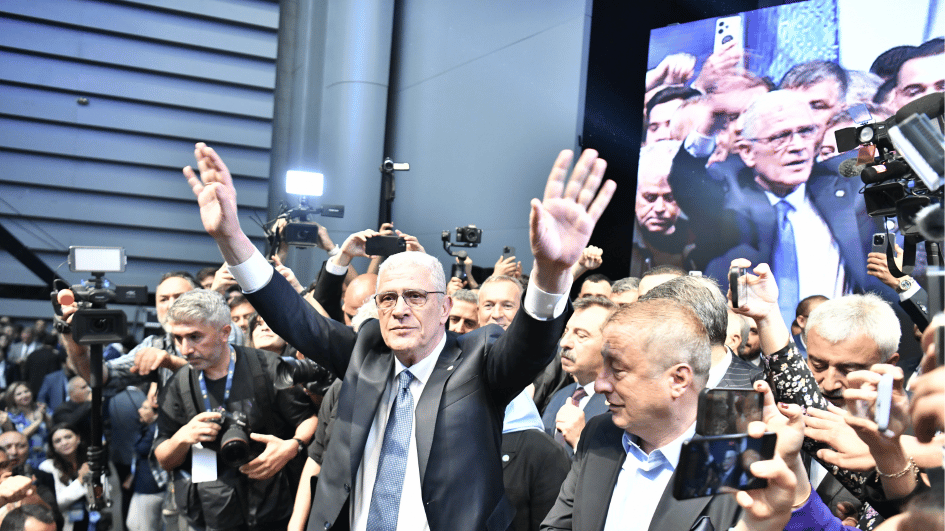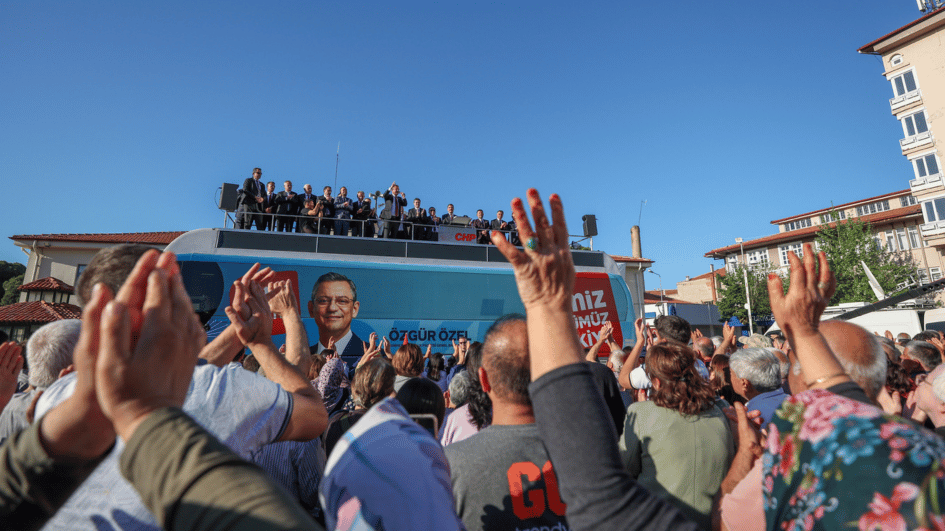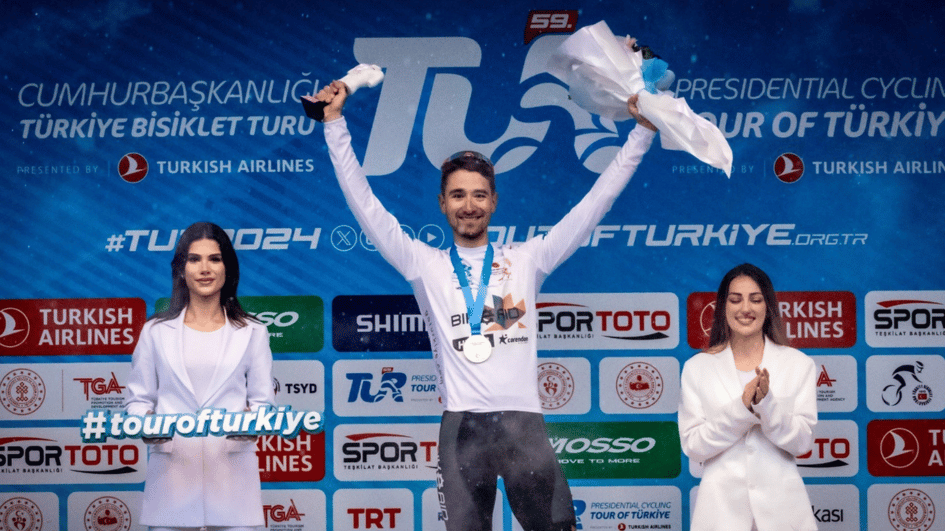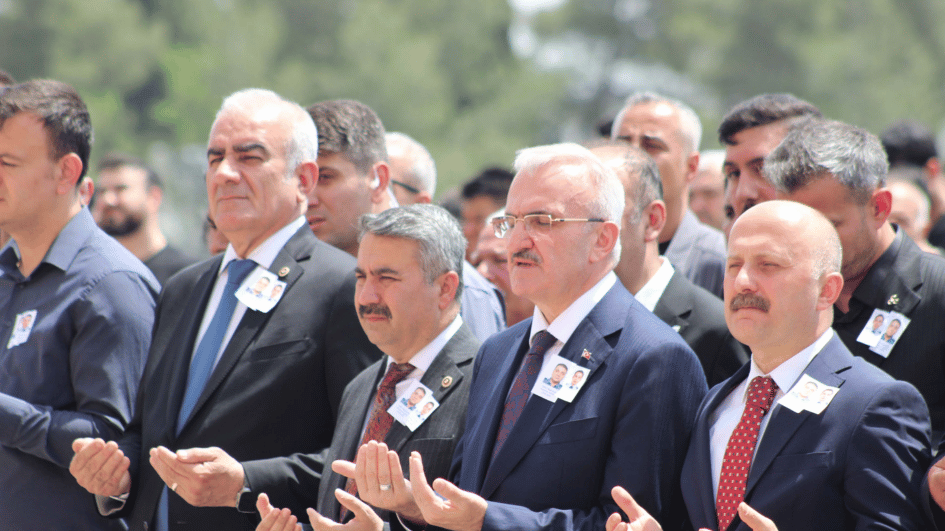Ties with Turkey very critical to US: Senior official
Serkan Demirtaş - ANKARA
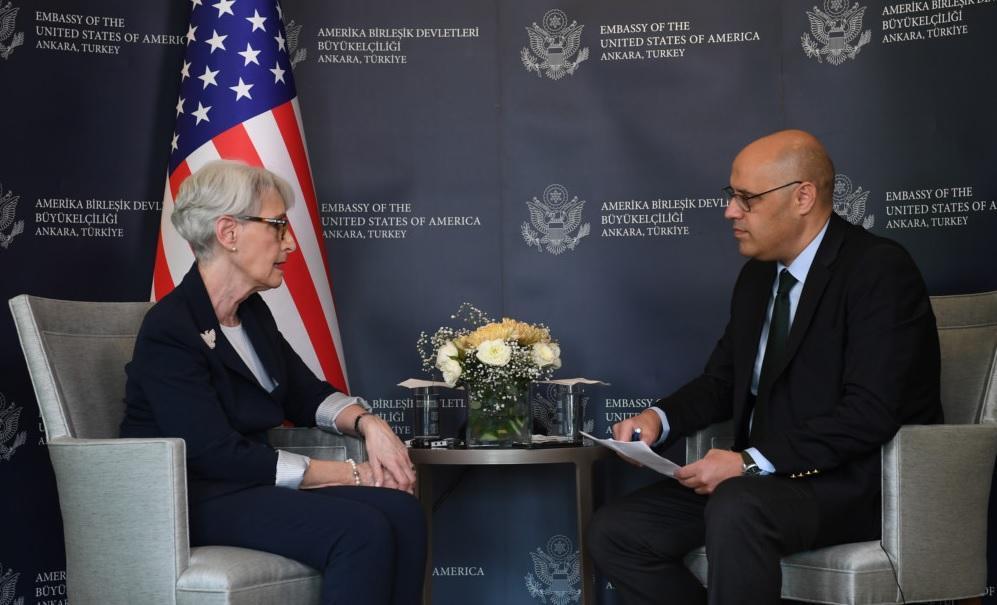
A senior American official has described ties with Turkey as very critical and significant despite ongoing differences in various issues, including the U.S. support to the YPG and Turkey’s deployment of the Russian air defense systems, while recalling that Turkish President Recep Tayyip Erdoğan and U.S. President Joe Biden will discuss all the aspects of ties in a frank and direct way when they meet in mid-June.
U.S. Deputy Secretary of State Wendy Sherman, in an exclusive interview with the Hürriyet Daily News on the occasion of her visit to Ankara on May 28, elaborated the Turkish-American relationship in depth.
How would you define the current state of Turkish-American relations, which have been passing through difficult times?
The relationship with Turkey is a very critical one to the U.S. Turkey is a NATO partner, a strategic ally, a force in the world, and someone that we work very hard with in Afghanistan and in Libya to work to make sure that everybody in the world, including Russia and China, for instance, adhere to the global world order. Turkey is also a very important business and trade partner. So, I think this summit, this meeting between President Erdoğan and President Biden, is very important to put on a stamp on what all is good for our relationship. It’s also going to be a time where I’m sure that the president will raise concerns everyone is well aware that we have around human rights and democracy and what the trajectory of Turkey is as it moves into the future.
The U.S. sanctioned Turkey over the S-400s but imposed a waiver to Germany over the Nord Stream 2 pipeline. Isn’t it a sort of double standard?
There are very different laws that apply to Nord Stream 2 and to what’s called [the Countering America’s Adversaries Through Sanctions Act] CAATSA to the S-400. I think what’s really important around the S-400 is that the U.S. - because Turkey is a NATO ally - wants to make sure that we move together and accepting the S-400 creates issues in the NATO alliance, in our security, in our interoperability. We’ve offered alternatives to Turkey. They know exactly what to do if they want to get off from underneath these sanctions. I hope that, indeed, we can find a way forward.
Turkey has long been pressing for setting a joint body to inquire about the U.S. concerns on the deployment of the S-400s together with the F-35 fighters. Why has no progress been made on this?
This doesn’t come down to technique, or to details, or to political dialogue. Turkey is well aware of the steps that it needs to take. We’ve talked about ways to take them. And this will be a decision for Turkey to take.
The only mission to get rid of ISIS
The U.S. continued support to the YPG is a major concern for Turkey. It seems the Biden administration is intensifying its dialogue with this group Turkey calls a terror organization.
I know Turkey has concerns, but it should not. The U.S. has been very clear that any relationship we have with the SDF or YPG has one objective and one objective only, and that is anti-ISIS. To get rid of ISIS in Syria. And is our only mission.
Syria held sham elections amid ongoing humanitarian crisis and political instability. How do you assess the situation there?
We are always ready to listen to our partners’ ideas if they have, but fundamentally, the issue points out what needs to happen here, and that is very clear. There need to be free and fair elections in Syria. The international community should be one on that fact. The elections being held are not elections at all; they are just a sham to elevate [Bashar] al-Assad. We’re quite clear that we’ve not seen any indications that the Russians have any interest whatsoever in any kind of dialogue to create a real political transition in Syria. I wish that it was otherwise for the sake of the Syrian people, who are the ones being really harmed by what’s going on.
I’m delighted that officials from the Turkish government are having meetings with Greece. We think dialogue was always a good thing, and we are not the ones who are going to make these decisions. These difficult decisions are going to be made by Turkey and by Greece.

No question that Turkey is a strategic partner
You have described Turkey as a strategic partner, but U.S. Secretary Antony Blinken called Turkey a so-called ally in January. What are your thoughts on this?
I think there is no question that we have a strategic relationship with Turkey. There is no question that Turkey is a NATO ally, and that is a critical security relationship in this world. And that we have a strong, as I said, business and trade relationship that we both want to make sure the rules of the road are the same for everyone in the world.
At the same time, Secretary Blinken pointed out, as we all point out, we do have concerns about human rights in Turkey. We have concerns about the trajectory of democracy in Turkey. I’ve met with a wide range of people here in this country, government officials, of course, but with civil society and with the business community. Everyone sees enormous potential for growth in Turkey, but the business community is looking for predictability. They’re looking for sound fiscal and monetary policy. And they are looking for the rule of law. These are the kinds of concerns that we have going forward so that Turkey can be all that it can be. And it can really emphasize and own their part of being in the international community and respect for human rights and respect for democracy.
You have emphasized that human rights will be on the agenda in talks with Turkey. How specific can you be?
We have a multi-dimensional foreign policy. But President Biden and Secretary Blinken have put human rights and democracy at the center of our foreign policy. So it is on our minds. But the reason to reach the full potential of any society, you need to ensure that everyone can participate in that society. So, we were disappointed when we heard that the president decided to withdraw from the Istanbul Convention, and it really challenges the rights of women in society and protection for women in terms of sexual violence. So these are the kinds of things that create concern for us, and we hope that the strong civil society you have here will continue to speak up and be affirmed.
Frank and direct talks in Brussels
President Erdoğan expressed his hope that his meeting with President Biden will open a new era in ties. How do you think the meeting will result in?
Certainly, President Biden sees this as an important meeting. He’s not meeting with lots of leaders on the margins of the NATO summit, the U.S.-EU summit, and the G7. I think it is significant that he is meeting with President Erdoğan. It speaks about the relationship we have as a key NATO ally, the work we do together in the world, the work we do to ensure global world order and make sure that the trade and business relationship that we have gets ever deeper. But it is a relationship that also has some stresses and strains, and it’s important for allies to speak directly and frankly to each other. I expect some of that as well.
You are talking both about the divergences and opportunities regarding the future of Turkish-American ties. How will all these be balanced?
I think there’s an enormous amount of opportunity. I certainly heard that from the business community today. I’ve heard that in talking with people here in Turkey. Turkey has been a really important partner in Afghanistan, in Libya, in Syria, and in so many parts of the world. Even in Africa, where people often don’t think of Turkey being a partner with the U.S. So, I think there is a lot of opportunities. But even with our closest friends and allies, like in a marriage, it’s not always smooth. There are divergences, and we need to confront them directly.
Turkey has a special relationship with Russia, and the two cooperate in various conflict areas. This is seen as worrying for some NATO allies. How do you see it?
I think what is important for Turkey to understand is that as a NATO ally, it is critical that we stand together in solidarity. And by introducing systems that do not enhance that solidarity and do not enhance that interoperability and security, then we, conscious or not, are undermining the security of the world. NATO is the premier security alliance in this world, and we all have to treasure it, take care of it and make sure that it moves into the future the secretary-general has envisioned for what NATO 2023 ought to look like, for what NATO ought to head. It is a critical institution. So, where Russia is concerned, they have their own interest; they are not interested, as long as I’ve known it, to see NATO as the premier security institution, and is quite concerned about it. So accepting Russian systems seems to be counter to what NATO is about.



